
Pest Library
What You Should Know About Common Pests In Phoenix, Arizona
Arizona provides a home for many insects, rodents, birds, and other pests. Don’t let these pests get the best of you; know which are most likely to find a way onto your property or into your home. Our pest control guide will provide you with the helpful information necessary to protect your home against the pests most common in our region. If you live in the Phoenix area and have concerns about pests, don't hesitate to reach out to us at Hunter Pest Control. We will help you eliminate pests from your property and implement the routine services necessary to keep them from returning.
Cockroaches
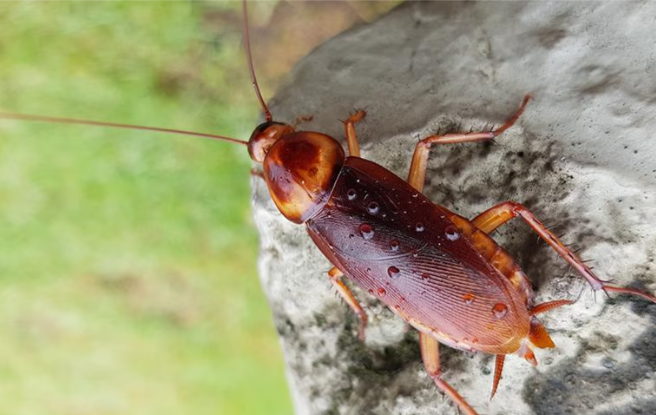
The cockroach is an insect with an oval body, long antennae, and six legs that allow them to run quickly from place to place. While most species have wings, most are not adept fliers. Cockroaches are scavengers and when living outside spend their lives in unsanitary places like garbage piles, sewers, and decaying plant and animal matter. When cockroaches are outside living away from people their scavenging feeding habits are helpful, but when in our homes, they are dangerous and unwelcome pests. Cockroaches regularly come into contact with and spread bacteria and diseases that cause illness.
The most common cockroach to be problematic in our Phoenix area homes and businesses is the German cockroach. They are a small cockroach that has adapted to living in our temperature-controlled structures, putting them in constant close contact with people. German cockroaches are nocturnal and, during the day, are quiet and stay hidden from our view. Homeowners can easily overlook a small infestation; knowing some of the most subtle signs of a cockroach infestation will help identify their presence before these problematic, disease-spreading pests take over.
- Noticing a subtle unpleasant odor in your home.
- Finding tiny black pepper-like droppings under sinks, cabinets, and other storage areas.
- Hearing running or tapping sounds on the surfaces of your home.
To help you guard your property and family against cockroaches, we want to provide you with some helpful prevention strategies.
- Inspect groceries, furniture, or deliveries for cockroaches before bringing them into the house.
- Store food in air-tight containers or refrigerators.
- Clean floors, food prep areas, sinks, and drains regularly.
- Inspect and seal gaps under and around doors and windows.
- Caulk small gaps around pipes and utility lines
- Seal broken vents
- Reduce humidity levels in your home using dehumidifiers.
Pigeons
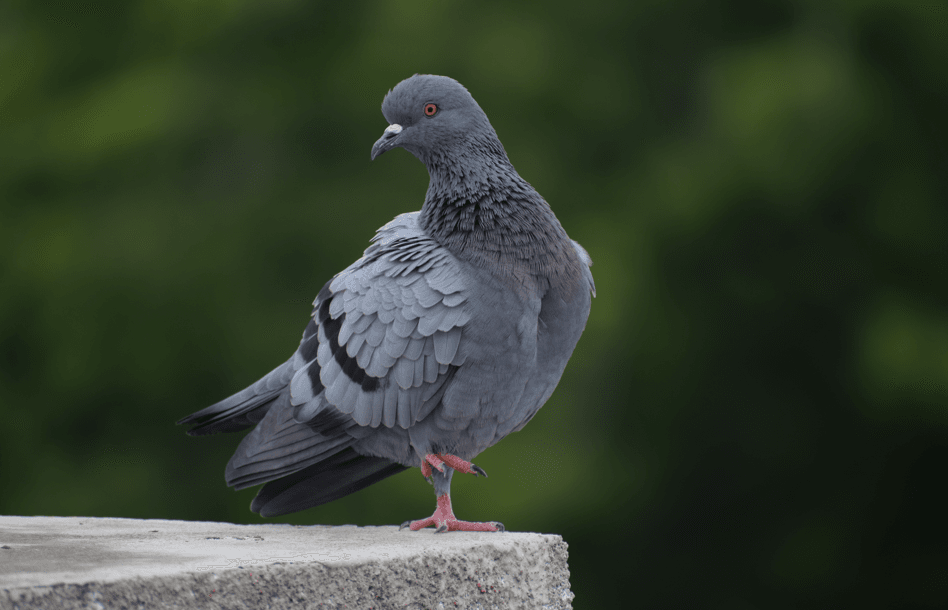
Pigeons are described by many people as rodents with wings. Like rodents, these birds regularly invade our properties to have their basic needs met. They are invasive pests regularly riddled with diseases like salmonella and toxoplasmosis that can make people ill. Pigeons also have a type of fungus growing in their feces which causes histoplasmosis when people breathe in the spores. In addition to the health risks pigeons pose, pigeons shouldn’t be welcome on our Arizona properties because of the structural damage they cause to our properties. Their nests clog and cause damage to roof eaves, gutters, and ventilation systems and their corrosive feces cause damage to the roofs and exterior walls of homes and businesses.
Pigeons live and breed almost anywhere. While they can survive outside on their own, they have learned that living with people will make their lives easier. In rural areas, pigeons feed in gardens and crop fields and on small insects. Those living in urban areas have adapted to eating the same foods we do and are a problem around dumpsters, parking lots, outdoor eating areas, vegetable gardens, and bird feeders. Pigeons breed year-round and are a constant threat to our Phoenix area properties.
To help you guard your property and family against pigeons, we want to provide you with some helpful prevention strategies.
- Eliminate sources of water by fixing leaky outdoor fixtures, clogged gutters, spigots, and hoses.
- Remove bird feeders from your yard.
- Keep locking lids on trashcans and compost bins.
- Maintain gardens and fruit trees, regularly harvesting fruits and vegetables from them.
- Use a motion-activated sprinkler system to scare pigeons from your yard.
Rats
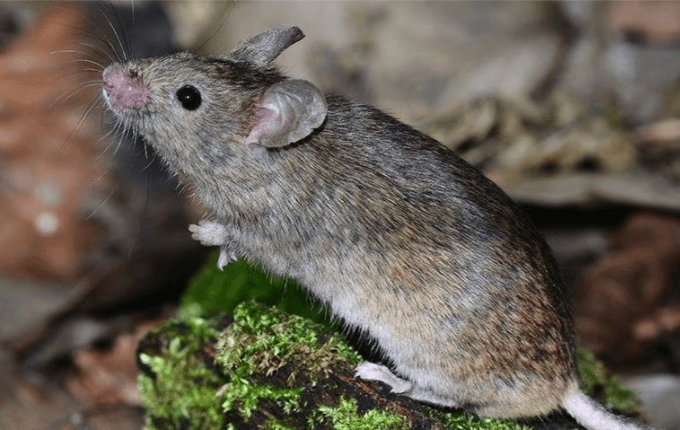
Rats can become a problem in and around any of our Phoenix area homes and businesses. Our yards provide rats with some of their favorite foraging sites- bird feeders, gardens, fruit trees, pet food, and trashcans. Rats are social and live together in groups of multiple males and females. These prolific breeders can create a large infestation in a short period of time. Rodents all have large front incisors, and the rat is no exception. When in our homes, the rat’s large sharp front incisors can cause a lot of damage to things like wires, pipes, cables, appliances, and furniture. When rats are in our homes they will also cause other problems like spreading bacteria and viruses, contaminating food, and creating unpleasant odors.
Roof rats regularly find their way into our Arizona properties. They have a smaller, slimmer build than other rats, and the body is covered in dark, smooth fur. Their smaller size causes young roof rats to be confused with adult mice. Roof rats are skilled climbers and nest in trees, vines, woodpiles, and shrubs. When they decide to move into our homes searching for food and shelter, they move through spaces they discover in or around the roof. Once roof rats get into our homes, they like to nest in attics and behind walls. Their small size allows them to easily move through spaces they find in roof eaves, roof intersections, and around windows and doors.
To help you guard your property and family against rats, we want to provide you with some helpful prevention strategies.
- Cut trees, vines, and tall shrubbery back away from your home’s exterior and roofline.
- Roof rats love fruit; if you have fruit trees on your property, regularly harvest fruits from them.
- Place caps on chimneys and appropriate covers over vents.
- Make sure trashcans and compost bins have tight-fitting covers on them to keep hungry rats out of them.
- Remove clutter from your home and yard that rats like to take cover and nest within.
Scorpions
.2404181114550.jpg)
Arizona is home to many unsavory pests, but one that sends shivers down most people’s spines is the scorpion. They are unpleasant to look at, have a stinger found at the end of their curved tail is, are equipped with powerful pincers, and have venom powerful enough to cause harm to people. It’s no wonder these pests are so unwelcome in our Phoenix yards and homes.
The scorpion in our area that we need to be most concerned with is the Arizona bark scorpion; it has venom powerful enough to cause symptoms requiring medical attention. The good news is that scorpions do their best to stay out of the way of people, and stings are generally accidental. Most scorpion stings happen when a scorpion is trying to defend themselves from being squished or otherwise harmed. The reason scorpions are such a common sight on our properties is that they provide them with their necessities, including regular sources of water. The most common reason scorpions end up in our homes is that they have followed their prey indoors. Properties with a lot of insect and spider activity tend to also experience problems with predatory scorpions.
To help you guard your property and family against scorpions, we want to provide you with some helpful prevention strategies.
- Never ignore holes and gaps that develop in your home; seal them up to scorpions and their prey out of your home.
- Make sure screens are intact and secure.
- Seal spaces around exterior light fixtures, pipes, and wires entering your home.
- Eliminate moisture and water source in your home by repairing leaky pipes, dehumidifiers, and ensuring proper ventilation.
- Scorpions like to hide in dense vegetation and clutter- maintain your yard, remove woodpiles and other necessary debris from your yard, and keep storage areas in your home neat and organized.
Spiders
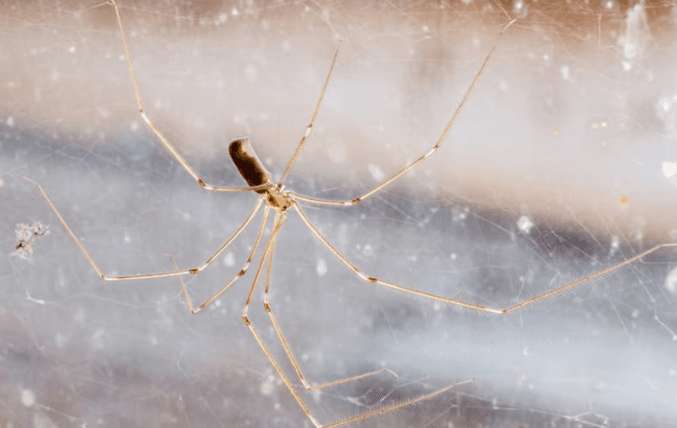
Spiders are a type of arachnid that has eight legs, produces silk, and possesses venom. They inject their venom into their insect prey to subdue them using their fang-like teeth. The venom most spiders have is only potent enough to harm their insect prey- not people. While spiders aren’t aggressive, spider bites do happen- usually to protect themselves from being harmed. There are only a couple of dangerous spiders in the United States, with the black widow spider being one of the most well-known. Their venom is strong enough to harm a person and cause symptoms significant enough to require medical attention.
In controlled numbers, spiders living in your yard are not necessarily a bad thing. They provide a valuable service through their eating habits- reducing populations of nuisance and dangerous insects. However, when spiders take over your outdoor space or start to move into your home, their populations need to be controlled. The best way to control spider numbers is to limit their access to food by controlling insect infestations in your yard or home. Putting into place year-round pest control services is the best way to control spiders and the insects they are feeding on.
- To help you guard your property and family against spiders, we want to provide you with some helpful prevention strategies.
- Reduce standing water on your property that attracts insects activity and provides a water source for spiders.
- Maintain your lawn and reduce areas of overgrown vegetation that spiders will hang out in.
- Remove things like woodpiles, yard debris, and construction debris from your yard, providing spiders with secluded spots to hide and hunt for their insect prey.
- Keep spiders out of your home by inspecting its exterior and sealing any openings you discover. Make sure weather-stripping is intact around windows and doors, and door sweeps are placed on exterior doors.
Termites
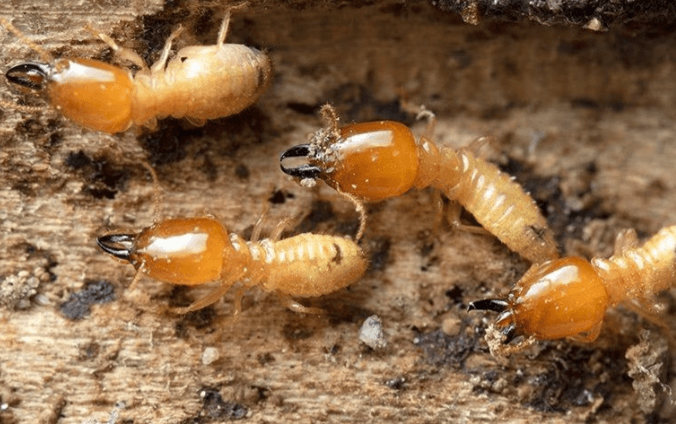
When termites come to feed on your home, you're not likely to see them. Worker termites (the ones that eat wood) rarely expose themselves. The type of termite that is most often seen is the caste of termite known as a swarmer. Swarmers are around ⅜ of an inch long with dark brown (almost black) bodies and long white wings, which are rounded at the tips. These winged reproductives are produced by a colony once it has matured and is ready to replicate.
In nature, termites are beneficial insects. They break down decaying wood and help to fertilize the soil. When they get into a home, they are destructive pests that can damage the support structure of a home from the inside out. This kind of damage can be extremely difficult to repair.
The only way to effectively protect a home from these destructive pests is to apply a bait or chemical barrier around the foundation perimeter. This should be installed and maintained by a licensed professional to ensure proper application. There are, however, some preventative steps homeowners can take to reduce the chance of infestation. Remove any conditions that allow the wood of your home to touch the soil. Keep your foundation perimeter free of leaves, stacked wood, and organic debris. Reduce moisture around your home. Keep crawl spaces free of wood debris.
Phoenix, AZ Pest Prevention You Can Count On!
At Hunter Pest Control, we guarantee our services and are dedicated to providing top-notch customer service. "Let us take care of what is bugging you." To learn more about our pest control services for your Phoenix home or commercial pest control solutions in Phoenix, please reach out to us today!